#Enterprise Solutions
Explore tagged Tumblr posts
Text
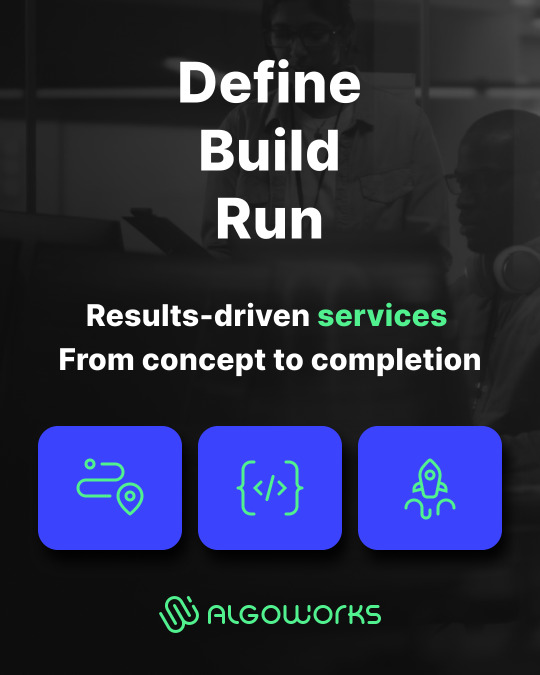
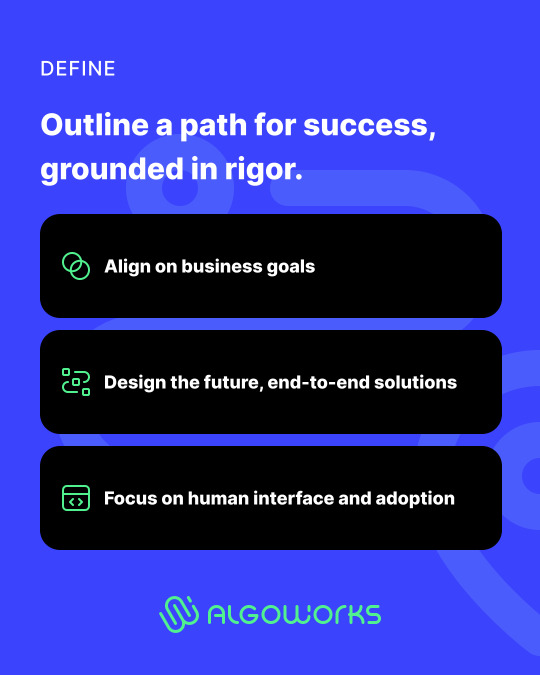

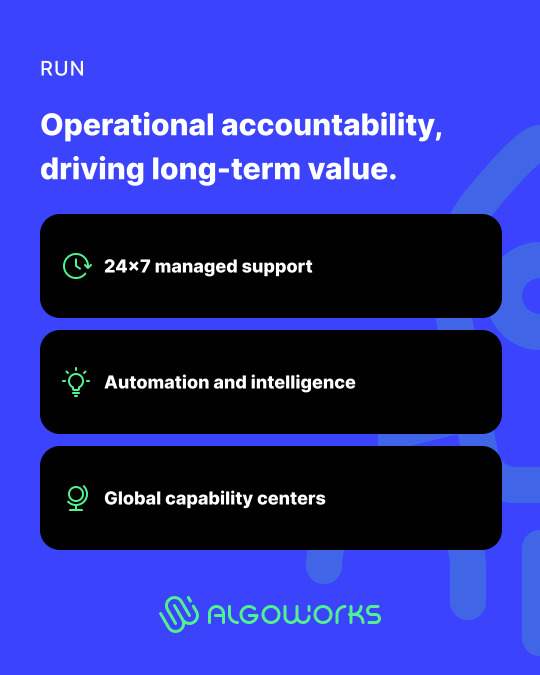
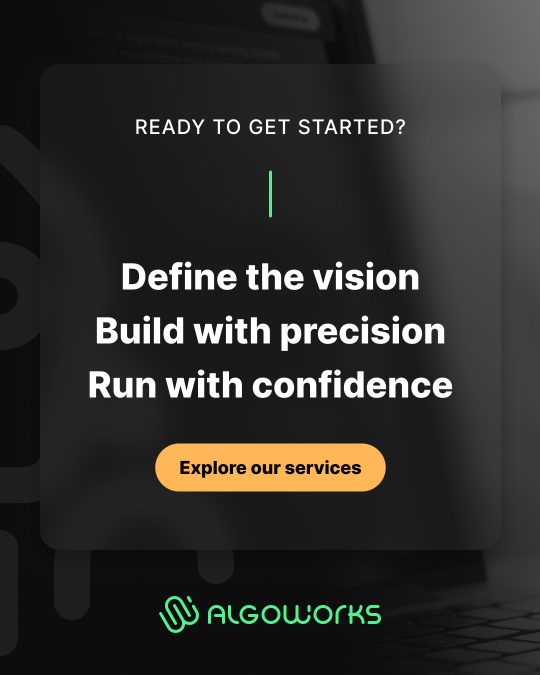
We follow our Define, Build, Run framework to execute flawlessly. From deep listening and 360° planning, to building with agile development and clean code, we ensure performance, security and return on investment through 24/7 monitoring and SLA-backed delivery.
Visit our website to learn more! https://www.algoworks.com/services/
#digital transformation#agile development#clean code#software engineering#cyber security#enterprise solutions#tech innovation#cloud services#innovations#technology#leadership#business excellence
2 notes
·
View notes
Text
At AQe Digital, we leverage cutting-edge technologies and our 27+ years of extensive experience to deliver goal-oriented digital solutions tailored to industry-specific needs.
✅ 650+ highly skilled professionals driving innovation and excellence.
✅ Industry-focused solutions designed for maximum impact.
✅ Quick collaboration, agile development, and reliable support for seamless execution.
#Digital Product Engineering#Digital Transformation#Enterprise Solutions#Next-gen Tech#Cloud-based ERP solutions#Custom Product Development#Online Retail Solutions#Apps & Integrations
2 notes
·
View notes
Text
What is the best web-based enterprise accounting software?
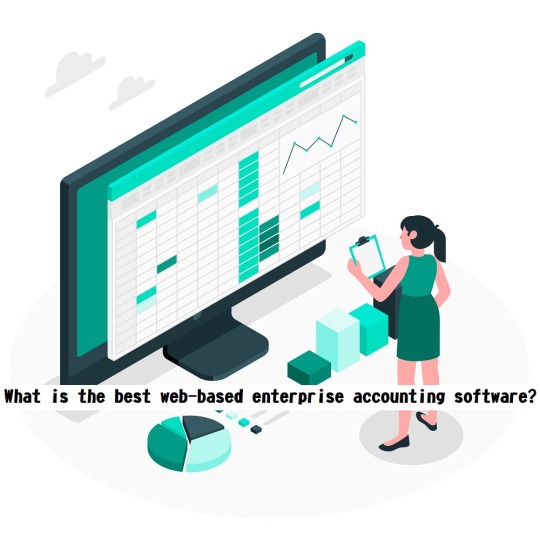
In the fast-paced and ever-evolving landscape of business, staying on top of your finances is crucial. As enterprises expand their operations, managing accounts efficiently becomes a daunting task. Thankfully, with the advent of technology, businesses now have access to a plethora of web-based enterprise accounting software options to streamline their financial processes. In this comprehensive guide, we will explore the ins and outs of web-based enterprise accounting software, helping you make an informed decision on the best solution for your business needs.
Understanding Web-Based Enterprise Accounting Software
Web-based enterprise accounting software, often referred to as cloud accounting software, is a digital solution that allows businesses to manage their financial activities online. Unlike traditional accounting systems that rely on on-premise software, web-based accounting tools operate in the cloud, offering users the flexibility to access their financial data from anywhere with an internet connection.
Advantages of Web-Based Enterprise Accounting Software
1. Accessibility
One of the primary advantages of web-based accounting software is accessibility. With data stored securely in the cloud, users can access their financial information anytime, anywhere. This proves especially beneficial for enterprises with multiple locations or remote teams, fostering collaboration and efficiency.
2. Cost Efficiency
Web-based accounting solutions often follow a subscription-based model, eliminating the need for costly upfront investments in software and hardware. This cost-effective approach makes it easier for businesses to scale their accounting infrastructure according to their needs without breaking the bank.
3. Real-Time Updates
In the dynamic world of business, real-time data is invaluable. Web-based accounting software provides instant updates, ensuring that users have access to the most recent financial information. This feature is crucial for making informed decisions and adapting to market changes promptly.
4. Automatic Updates and Maintenance
Gone are the days of manual software updates and maintenance. With web-based accounting solutions, updates are automatic, and maintenance is handled by the service provider. This frees up valuable time for businesses to focus on core operations rather than managing software updates.
Features to Look for in Web-Based Enterprise Accounting Software
1. User-Friendly Interface
A user-friendly interface is essential for ensuring that your team can navigate the software seamlessly. Look for solutions with intuitive dashboards and easy-to-understand features to minimize the learning curve for your staff.
2. Scalability
As your enterprise grows, so do your accounting needs. Choose a web-based accounting solution that can scale with your business, accommodating increased transaction volumes and additional users without compromising performance.
3. Integration Capabilities
Efficient accounting doesn't happen in isolation. Ensure that the web-based accounting software you choose integrates seamlessly with other essential business tools, such as CRM systems, project management software, and e-commerce platforms.
4. Security
The security of your financial data should be a top priority. Opt for web-based accounting software that employs robust encryption protocols and follows industry best practices for data protection. Additionally, check for features such as multi-factor authentication to add an extra layer of security.
Top Contenders in the Web-Based Enterprise Accounting Software Market
1. MargBooks
MargBooks Online is a India's popular online accounting solution known for its user-friendly interface and robust features. It offers a range of plans to suit businesses of all sizes and provides tools for invoicing, expense tracking, and financial reporting.
2. Xero
Xero is another cloud accounting software that caters to small and medium-sized enterprises. With features like bank reconciliation, inventory management, and payroll integration, Xero is a comprehensive solution for businesses looking to streamline their financial processes.
3. NetSuite
NetSuite, owned by Oracle, is a cloud-based ERP (Enterprise Resource Planning) solution that includes robust accounting functionalities. It is suitable for larger enterprises with complex financial needs and offers features such as financial planning, revenue recognition, and multi-currency support.
4. Zoho Books
Zoho Books is part of the Zoho suite of business applications and is designed for small and medium-sized enterprises. It provides features such as automated workflows, project billing, and collaborative client portals, making it a versatile choice for businesses with diverse needs.
Making the Right Choice for Your Business
Choosing the best web-based enterprise accounting software for your business requires careful consideration of your specific needs and objectives. Here are some steps to guide you through the decision-making process:
1. Assess Your Business Requirements
Start by identifying your business's specific accounting requirements. Consider factors such as the number of users, the complexity of your financial transactions, and the need for integration with other business applications.
2. Set a Budget
Determine a realistic budget for your accounting software. While web-based solutions often offer cost savings compared to traditional software, it's essential to choose a solution that aligns with your financial resources.
3. Explore Free Trials
Many web-based accounting software providers offer free trials of their platforms. Take advantage of these trials to explore the features and functionalities of different solutions before making a commitment.
4. Seek Recommendations and Reviews
Consult with other businesses in your industry or network to gather recommendations and insights. Additionally, read reviews from reputable sources to gain a better understanding of the user experiences with different accounting software options.
The Evolution of Web-Based Enterprise Accounting Software
As technology continues to advance, so does the landscape of web-based enterprise accounting software. The evolution of these platforms is driven by the ever-changing needs of businesses and the ongoing developments in cloud technology. Let's delve deeper into the evolving trends shaping the future of web-based accounting solutions.
1. Artificial Intelligence (AI) and Automation
The integration of artificial intelligence and automation is revolutionizing how businesses handle their financial processes. Modern web-based accounting software is incorporating AI algorithms to automate repetitive tasks, such as data entry and invoice categorization. This not only increases efficiency but also minimizes the risk of human error.
2. Enhanced Data Analytics
In the age of big data, the ability to derive meaningful insights from financial data is paramount. Advanced web-based accounting solutions are now equipped with powerful data analytics tools. These tools help businesses analyze trends, forecast future financial scenarios, and make data-driven decisions.
3. Mobile Accessibility
The shift towards mobile accessibility is a notable trend in web-based enterprise accounting software. Businesses are increasingly relying on mobile devices for day-to-day operations, and accounting software providers are responding by offering mobile-friendly applications. This allows users to manage their finances on the go, providing unparalleled flexibility.
4. Integration with E-Commerce Platforms
As e-commerce continues to thrive, businesses are looking for accounting solutions that seamlessly integrate with their online sales platforms. Modern web-based accounting software often includes features tailored for e-commerce, such as automated transaction reconciliation with online sales channels and inventory management.
5. Blockchain Technology
Blockchain technology is making waves in various industries, and accounting is no exception. Some web-based accounting solutions are exploring the integration of blockchain for enhanced security and transparency in financial transactions. This could revolutionize how businesses handle aspects like auditing and transaction verification.
Common Challenges and How to Overcome Them
While web-based enterprise accounting software offers numerous benefits, it's important to be aware of potential challenges and how to overcome them. Here are some common issues businesses may face:
1. Security Concerns
The sensitive nature of financial data raises concerns about security in the cloud. To address this, choose a web-based accounting solution that employs robust encryption protocols and complies with industry security standards. Additionally, educate your team about best practices for secure online behavior.
2. Connectivity Issues
Reliable internet connectivity is crucial for accessing web-based accounting software. In regions with unstable internet connections, businesses may face challenges in real-time collaboration and data accessibility. Consider implementing backup solutions for offline access or explore accounting software with offline capabilities.
3. Customization Needs
Every business has unique accounting requirements. Some businesses may find that certain web-based accounting solutions lack the level of customization they need. In such cases, explore platforms that offer extensive customization options or consider integrating additional specialized accounting tools.
4. Data Ownership and Control
Understanding the terms of service and data ownership is essential when using web-based accounting software. Ensure that the chosen platform allows you to retain control over your financial data and provides mechanisms for data export in case of migration to a different system.
Conclusion: Making the Right Choice for Long-Term Success
In the fast-paced world of business, the right web-based enterprise accounting software can be a game-changer. Whether you're a small startup or a large enterprise, the key is to stay informed about the latest advancements in accounting technology and align your choice with the long-term goals of your business.
As you navigate the vast landscape of web-based accounting solutions, remember that the best choice is the one that seamlessly integrates with your business processes, enhances efficiency, and adapts to the evolving needs of your enterprise. If you have any specific questions or need further guidance on a particular aspect of web-based accounting software, feel free to ask for more information!
Also read- Online billing and accounting software to manage your business
#Web-based accounting#Cloud software#Financial management#Enterprise solutions#accounting#software#billing#online billing software#technology#programming#erp#tech#drawings#illlustration#artwork#art style#sketchy#art#aspec#aromantic asexual#arospec#acespec#aroace#aro#bg3#astarion#shadowheart#gale dekarios#gale of waterdeep#karlach
2 notes
·
View notes
Text
Jayalakshmi Nagarajan COO At AAKIT On Reimagining ERP With Design Thinking

In this episode of Discover Dialogues, Vikramsinh Ghatge, Sr. Marketing Director and Editor-in-Chief at TechDogs, engages in an insightful conversation with Jayalakshmi Nagarajan, Chief Operating Officer at Aakit Technologies Pvt. Ltd. With more than 25 years of industry experience, Jaya shares her perspective on driving real ERP transformation across complex industries — from manufacturing and mill production to real estate and wholesale distribution.
What sets Jaya apart is her strategic clarity, operational rigor, and commitment to people-first leadership. Under her guidance, Aakit has helped enterprises modernize legacy systems not through technical brute force, but through an approach grounded in user empathy, process alignment, and precision delivery.
At the core of Aakit’s methodology is Design Thinking — not just as a trend, but as a practical framework to uncover true business needs. As Jaya explains in this conversation, Aakit breaks away from traditional ERP implementation patterns by involving users early, prototyping rapidly, and validating ideas through real-world feedback. This ensures ERP platforms are not only functional, but intuitive, scalable, and aligned with business outcomes.
Key Insights from This Episode:
Why industries like manufacturing and real estate demand resilient, scalable ERP ecosystems
Common pitfalls in SAP and cloud migrations—and how to sidestep them
How Design Thinking transforms rigid systems into innovation platforms
The mindset shift enterprises must embrace before adopting AI or S/4HANA
How Aakit stands apart from conventional ERP vendors
Success stories from brands like Madura, Kataline, and Lorenz
How hypercare and co-created roadmaps drive long-term ERP value
Aakit’s distinct approach stands on three pillars:
1. Outcome-Focused Delivery Success is defined upfront—beyond system go-lives. Aakit accelerates value realization through sector-specific templates, pre-built accelerators, and structured hypercare strategies.
2. Built-In Agility Using a modular, cloud-native framework, Aakit ensures fast deployments, streamlined S/4HANA adoption, and adaptive iteration cycles. Agile sprints paired with the latest SAP updates fuel continuous business innovation.
3. Strategic Client Partnerships Aakit stays engaged beyond implementation, with client success teams focused on co-creating roadmaps, enabling automation, and integrating emerging tech like AI, blockchain, and ESG reporting tools.
From aligning global teams to navigating cultural and operational complexities, Jaya shares how Aakit delivers execution excellence while staying true to its human-centered design philosophy.
0 notes
Text
Jayalakshmi Nagarajan COO At AAKIT On Reimagining ERP With Design Thinking

In this episode of Discover Dialogues, Vikramsinh Ghatge, Senior Marketing Director and Editor-in-Chief at TechDogs, engages in a compelling conversation with Jayalakshmi Nagarajan, Chief Operating Officer at Aakit Technologies Pvt. Ltd. With over 25 years of experience, Jaya shares her unique perspective on delivering effective ERP transformations in high-stakes industries.
Having led complex ERP projects across manufacturing, mill production, real estate, and wholesale sectors, Jaya emphasizes that successful transformation is less about the code and more about people, processes, and precision. Her approach centers around people-first leadership, strategic foresight, and a commitment to operational excellence.
Aakit’s ERP philosophy is grounded in Design Thinking—not as a buzzword, but as a practical framework for aligning technology with user needs. Instead of retrofitting legacy processes into modern systems, Aakit engages cross-functional teams from the outset, rapidly prototypes ideas, and continuously tests with end users. This human-centered methodology results in ERP solutions that are intuitive, efficient, and directly tied to business outcomes.
Highlights from the Episode:
Why sectors like manufacturing and real estate demand robust ERP systems
The most common pitfalls in SAP and cloud migrations—and how to sidestep them
How Design Thinking introduces innovation into standardized environments
The cultural and mindset shifts required to embrace AI and S/4HANA
How Aakit differentiates itself from traditional ERP vendors
Customer success stories featuring Madura, Kataline, and Lorenz
Aakit’s focus on long-term value through hypercare and collaborative roadmap planning
Aakit’s Differentiators:
1. Outcome-Driven Delivery: Success at Aakit is measured beyond just system go-lives. Their approach begins with defining clear business outcomes and leveraging pre-built accelerators, industry templates, and hypercare to streamline delivery and enhance ROI.
2. Built-In Agility: With a modular, cloud-first architecture, Aakit enables fast S/4HANA implementations and continuous iteration. Agile sprint methodologies and alignment with SAP’s latest advancements ensure organizations can adapt and innovate quickly.
3. Strategic Partnerships for the Long Haul: Aakit remains committed well beyond go-live. Their client success teams work closely with enterprises to co-develop long-term roadmaps, champion intelligent automation, and explore emerging technologies like blockchain and sustainability reporting.
Throughout the discussion, Jaya also touches on Aakit’s global project execution strategies, highlighting how the company balances operational complexity with a steadfast human-centered approach. For organizations seeking to modernize their ERP systems with clarity and confidence, Aakit’s story is one worth exploring.
0 notes
Text
Exploring AGI and ASI: A Business Perspective
While AGI represents the ability of machines to learn and perform any intellectual task a human can, ASI refers to intelligence that surpasses human capacity. AGI vs. ASI is a key distinction when considering future developments in artificial intelligence. This blog explores how both forms of AI could influence enterprise innovation, from customer service to complex data analysis.

#AGI vs ASI#Artificial general intelligence#artificial intelligence#AI Development#Enterprise solutions
0 notes
Text
What are ProcureTech implementation outcomes with a High Hansen Fit Score versus a Low Hansen Fit Score?
#AdaptOne#Agile/Niche Solutions#ApolloRise#ConvergentIS#COUPA#Enterprise Solutions#Focal Point#Hansen Fit Score#Hansen Fit Score Comparison#Ivalua#Mid-Market Solutions#Oro Labs#procuretech#ProcureTech ROI#SAP Ariba
0 notes
Text
Ready to boost your #projectefficiency ? 🚀 Discover how #MicrosoftPlanner can transform your #workflow ! With #TechnologySolutionsWorldwide by your side, you can unleash the full potential of your team. Schedule your consultation today at https://techsolworld.com/subscriptions ! 🌟Call (800)998-2792
#project management#microsoft planner#technology solutions worldwide#microsoft workflow#manage workflows#office proficiency#efficiency tools#best efficiency tools#office optimization#work faster#workplace tools#workplace applications#workplace software for enterprise#enterprise solutions#microsoft enterprise solutions for office#office business applications#the best office applications#microsoft partner in my area#local microsoft office partner#best office solution for medium business#microsoftgoldpartner#microsoftenterprise#technologysolutionsworldwide#microsoftappsource#microsoftlicensereseller#microsoft dynamics 365
1 note
·
View note
Text
0 notes
Text
#SaaS Solutions#Enterprise Solutions#IT Services Surat#Business IT Solutions#Cloud Software#Business Automation#Digital Transformation Surat
0 notes
Text
Revolutionizing Legacy Sectors with Smart Enterprise Solutions

Traditional industries—from manufacturing to logistics—are rapidly embracing transformation, all thanks to modern enterprise solutions.
This blog explores how tech-driven platforms are replacing outdated workflows with agile, scalable systems that drive efficiency and innovation. From intelligent automation to data centralization, these solutions are the backbone of the new industrial revolution.
If your enterprise is still stuck in legacy mode, it’s time to rethink the foundation.
#enterprise solutions#Smart Enterprise Solutions#impactful enterprise platforms#citizen-centric platforms
0 notes
Text

Looking for the best enterprise solution to enhance your business operations? Discover innovative and scalable solutions that streamline processes, improve productivity, and drive growth.
Get customized enterprise solutions tailored to your needs!
0 notes
Text
Drive Business Growth with AI-Driven Innovation
Stay ahead in the digital era with solutions that unlock growth, efficiency, and competitive advantage. Generative AI is transforming industries by automating workflows, enhancing decision-making, and upskilling workforces for the future. At upGrad Enterprise, we empower organizations to leverage AI for smarter operations, personalized customer experiences, and data-driven insights. Whether streamlining processes or driving business transformation, our solutions help enterprises innovate and scale. Don’t just adapt to change—lead it with AI-driven innovation programs for businesses.
1 note
·
View note
Text
A Comprehensive Guide to Enterprise Applications: Examples, Benefits, and Development Approaches
In today’s fast-paced digital landscape, businesses and government entities rely on robust software solutions to manage operations, enhance efficiency, and drive growth. These solutions, known as enterprise applications (EAs), serve as the backbone of organizations, integrating various functions to ensure seamless workflows and collaboration.
In this blog, we’ll explore what an enterprise application is, provide real-world examples, and discuss the development approaches companies can take to build or acquire these powerful systems.
What is an Enterprise Application?
An enterprise application (EA) is a large-scale software system designed to operate within a corporate or government environment. It integrates multiple functions, automating business processes and ensuring that all phases of an organization’s operations are interconnected.
Unlike standard consumer applications, enterprise apps are tailored to business needs and often support high volumes of users, transactions, and data. These applications foster collaboration, improve decision-making, and streamline operations.
Examples of Enterprise Applications
Enterprise applications come in many forms, each catering to specific business functions. Below are some of the most common types, along with real-world examples:
1. Accounting and Billing Systems
Example: Sage Intacct
Accounting and billing applications manage a company’s financial transactions, tracking expenses, revenue, and budgets. These systems are crucial for financial planning, tax reporting, and ensuring compliance with regulations.
2. Customer Relationship Management (CRM) Systems
Example: Salesforce
CRM platforms help businesses collect and manage customer data, track interactions, and nurture leads. These systems enhance customer engagement and retention by automating communication and personalizing marketing efforts.
3. Point-of-Sale (POS) Software
Example: Vend POS
POS software is essential for retail businesses, allowing them to process sales, manage inventory, and track revenue. These systems ensure smooth customer transactions while offering insights into purchasing trends.
4. Supply Chain Management (SCM) Systems
Example: Oracle SCM
SCM applications enable businesses to optimize logistics, manage supplier relationships, and track the movement of goods. They help minimize inefficiencies, reduce costs, and improve overall supply chain visibility.
5. Enterprise Resource Planning (ERP) Systems
Example: SAP ERP
ERP software integrates multiple business processes — finance, HR, procurement, and more — into a single platform. ERP systems enhance operational efficiency across departments by centralizing data and automating workflows.
6. Business Intelligence (BI) Systems
Example: Funnel
BI tools analyze and visualize business data, allowing executives and managers to make informed decisions. They transform raw data into actionable insights, driving strategic planning and performance improvements.
7. Human Resource (HR) Management Systems
Example: UKG Dimensions
HR applications handle employee records, payroll, scheduling, recruitment, and performance tracking. These systems simplify administrative tasks and improve workforce management.
Why Do Businesses Need Enterprise Applications?
Enterprise applications offer several key benefits, including:
Operational Efficiency: Automating tasks reduces manual effort and increases productivity.
Data Centralization: All business units have access to real-time, accurate information.
Improved Collaboration: Teams can work together seamlessly with integrated tools.
Enhanced Decision-Making: BI and analytics provide deep insights for strategic planning.
Scalability: Enterprise apps grow with the business, accommodating increasing demands.
Regulatory Compliance: Ensures businesses adhere to industry standards and legal requirements.
Developing an Enterprise Application: Build vs. Buy
Organizations looking to implement enterprise applications have two primary options:
1. Off-the-Shelf Enterprise Solutions
Many companies opt for ready-made enterprise applications from SAP, Oracle, and Microsoft. These solutions provide:
Faster deployment with pre-built functionalities.
Ongoing support from software providers.
Regular updates to keep up with industry changes.
However, off-the-shelf software may lack customization options and require expensive licensing fees.
2. Custom Enterprise Application Development
Businesses with unique needs often develop their applications in-house or with a development partner. This approach offers:
Tailored solutions that fit specific business workflows.
Greater flexibility to scale and modify features as needed.
Competitive advantage through proprietary technology.
The downside is that custom development requires more time, resources, and expertise.
The Rise of Code Generation and Low-Code Platforms
Modern code generation and low code platforms like FAB Builder are revolutionizing enterprise application development by combining the flexibility of custom apps with the speed of pre-built solutions.
FAB Builder supports a wide range of tech stacks — including MERN, MEAN, React, Node.js, Java, Flutter, and iOS — empowering businesses to build and deploy scalable enterprise applications rapidly.
With FAB Builder:
Accelerate Development: AI-generate code for core app functionalities, reducing manual coding efforts.
Ensure Flexibility: Customize workflows, integrations, and user interfaces to fit your business needs.
Seamlessly Integrate: Connect with CRM, ERP, and BI tools to create a fully integrated enterprise ecosystem.
Scale with Confidence: Build apps that grow with your organization, without compromising performance.
By leveraging FAB Builder, developers, and businesses can create tailor-made enterprise applications without the lengthy timelines and high costs of traditional custom development.
Conclusion
Enterprise applications play a crucial role in modern business operations, enhancing efficiency, collaboration, and decision-making. Whether businesses choose to invest in off-the-shelf software, custom development, or code generation platforms, selecting the right enterprise solution is essential for long-term success.
As the landscape evolves, businesses must continuously adapt, ensuring their enterprise applications remain aligned with market demands and technological advancements.
Looking to Develop an Enterprise Application?
If you’re considering building an enterprise application, explore solutions like FAB Builder to simplify the process and accelerate your digital transformation.
Frequently Asked Questions
1. What is an enterprise application?
An enterprise application (EA) is a large-scale software system designed to integrate and automate business processes within corporate or government environments. These applications manage tasks like accounting, customer relationships, supply chain operations, and human resources, ensuring seamless collaboration and data sharing across departments.
2. What are some examples of enterprise applications?
Common types of enterprise applications include:
Accounting and Billing Systems
Customer Relationship Management (CRM)
Point-of-Sale (POS) Software
Supply Chain Management (SCM)
Enterprise Resource Planning (ERP)
Business Intelligence (BI) Systems
Human Resource (HR) Systems
3. Why are enterprise applications important for businesses?
Enterprise applications streamline complex business processes by automating workflows, centralizing data, and improving collaboration between departments. They help businesses:
Increase operational efficiency
Enhance decision-making through real-time insights
Ensure regulatory compliance
Scale operations as the company grows
4. What’s the difference between off-the-shelf and custom enterprise applications?
Off-the-shelf applications are pre-built software solutions designed to serve a wide range of businesses with standard functionalities. Examples include SAP ERP and Salesforce.
Custom enterprise applications are tailored solutions built specifically for a company’s unique workflows, offering greater flexibility and personalization.
5. How can FAB Builder help in developing enterprise applications?
FAB Builder accelerates enterprise app development through code generation by:
AI-generated code for core functionalities, reducing manual work.
Supporting modern tech stacks like MERN, MEAN, React, Node.js, Java, Flutter, and iOS.
Allowing easy customization of business logic, workflows, and UI.
Integrating seamlessly with CRM, ERP, and other enterprise tools.
Enabling businesses to build and deploy apps faster without sacrificing flexibility.
#low code#app development#enterprisesoftware#enterprisesolutions#enterprise software#enterprise solutions#code generation#low code app development#application development
0 notes
Text
How IoT and Smart CRM Are Reshaping 5G Enterprise Adoption
The integration of Smart CRM and IoT with 5G is transforming enterprise operations by enhancing connectivity, automating processes, and improving customer experiences. As businesses embrace digital transformation, the adoption of 5G technology is becoming essential for driving efficiency and innovation. This article explores how Smart CRM and IoT contribute to 5G adoption in enterprises.
Table of Contents
Understanding 5G Adoption in Enterprises
The Role of Smart CRM in 5G Implementation
How IoT Enhances 5G Adoption
Key Benefits of Smart CRM and IoT in a 5G Environment
Challenges Enterprises Face in 5G Integration
Future Outlook of 5G in Business
Conclusion
Understanding 5G Adoption in Enterprises
5G technology is revolutionizing enterprise connectivity with faster data speeds, lower latency, and improved network reliability. Businesses are leveraging 5G to support advanced applications, enhance customer experiences, and streamline operations. The adoption of 5G allows enterprises to integrate emerging technologies such as IoT and Smart CRM, enabling smarter decision-making and greater efficiency.
The Role of Smart CRM in 5G Implementation
Smart CRM (Customer Relationship Management) leverages AI and automation to improve customer interactions, sales processes, and data management. With 5G, Smart CRM systems can process real-time customer data, provide instant insights, and enhance personalization. Faster connectivity enables seamless communication across various business channels, making CRM tools more efficient and responsive.
How IoT Enhances 5G Adoption
IoT (Internet of Things) devices play a crucial role in accelerating 5G adoption by connecting multiple business operations and enabling real-time data exchange. With 5G’s ultra-fast network capabilities, IoT devices can transmit data instantly, supporting applications such as predictive maintenance, smart logistics, and automated workflows. This connectivity drives efficiency and scalability for enterprises.
Key Benefits of Smart CRM and IoT in a 5G Environment
Enhanced Connectivity: 5G enables uninterrupted communication between IoT devices and Smart CRM systems, ensuring seamless data flow.
Improved Decision-Making: Real-time analytics provided by IoT and CRM help businesses make faster, more informed decisions.
Automation and Efficiency: IoT sensors and AI-driven CRM tools automate tasks, reducing operational costs and human errors.
Better Customer Experience: Faster response times and personalized engagement improve customer satisfaction and loyalty.
Challenges Enterprises Face in 5G Integration
Despite its benefits, 5G adoption comes with challenges, including high implementation costs, security concerns, and the need for infrastructure upgrades. Enterprises must invest in compatible devices, advanced cybersecurity measures, and workforce training to fully leverage 5G capabilities.
Future Outlook of 5G in Business
The future of 5G in enterprises looks promising as industries continue to integrate Smart CRM and IoT technologies. As network coverage expands and implementation costs decrease, businesses will experience enhanced efficiency, innovation, and growth. The synergy between 5G, IoT, and Smart CRM will pave the way for more intelligent and automated business environments.
For More Info: https://bi-journal.com/smart-crm-iot-5g-business/
Conclusion
5G adoption in enterprises is being driven by Smart CRM and IoT, enabling businesses to optimize operations, improve customer engagement, and enhance productivity. As companies embrace digital transformation, leveraging these technologies will be crucial in staying competitive and achieving long-term success. Investing in 5G-powered solutions will unlock new opportunities and shape the future of enterprise connectivity.
#5G technology#enterprise solutions#business transformation#digital connectivity#smart business#IoT applications
0 notes